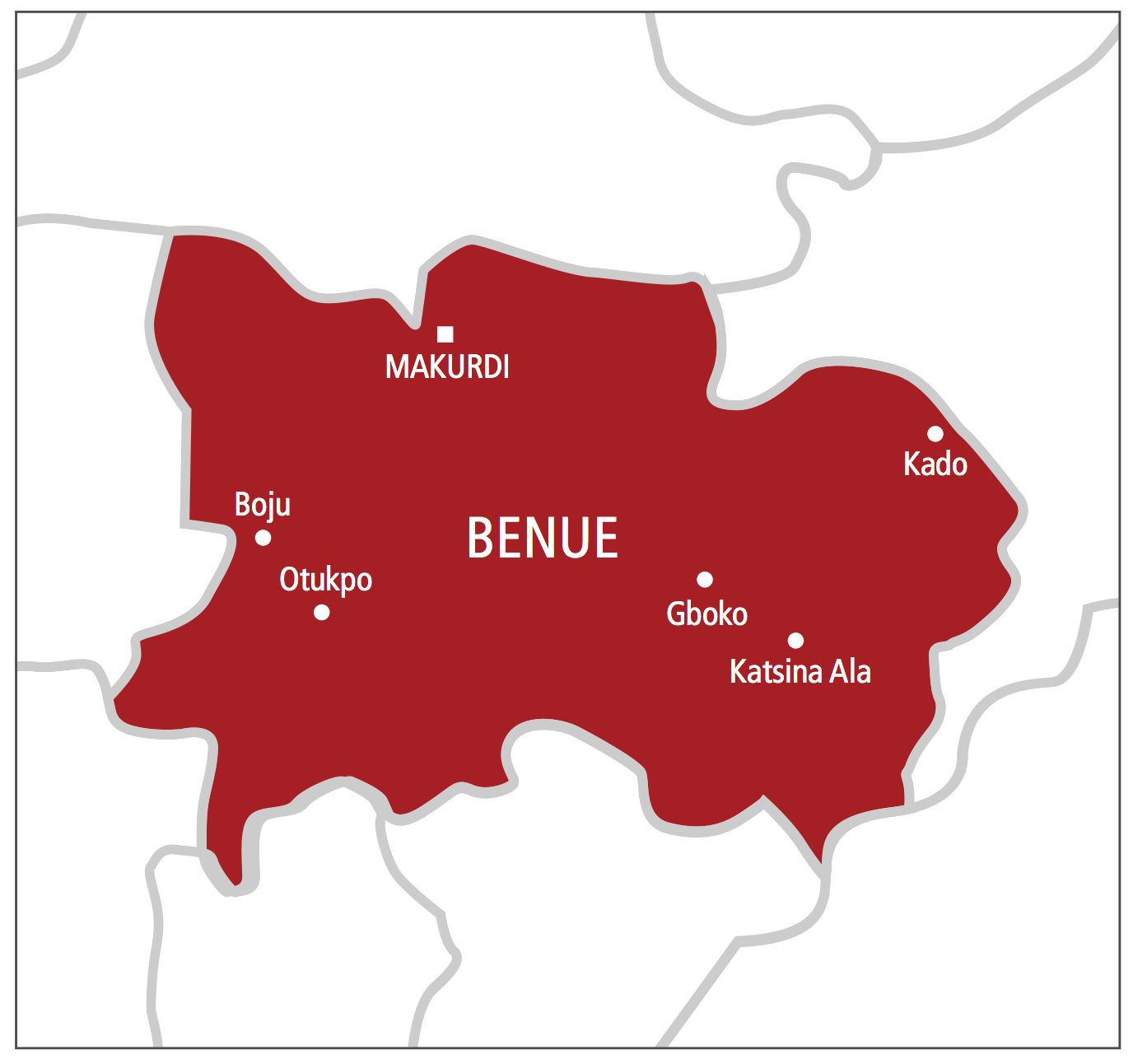The Court of Appeal’s decision that fined telecommunication giant, MTN Nigeria, N15 million for bombarding customers with unsolicited messages is a demonstration of the need for corporate accountability and regulatory measures to curb unsolicited messages in Nigeria, AMEH OCHOJILA reports.
The penalty the court imposed on telecommunications giant, MTN Nigeria Communication no doubt has set a significant precedent in the protection of consumer rights within Nigeria’s telecommunications industry.
According to industry watchers, the decision is more than a fine, it is a statement, a reaffirmation that consumer rights matter and will be upheld in the country.
The case stemmed from widespread grievances over unsolicited messages sent by MTN to its subscribers, a practice many have decried as an invasion of their privacy and an unethical marketing strategy.
Initially dismissed by the Federal High Court, the case was revived by the Court of Appeal, which overturned the earlier judgment. In the judgement, the trial judge, Peter Kekemeke, upheld the case of Mr Ezugwu Anene, who sought a declaration that 88 unsolicited calls made by MTN to him at odd hours caused embarrassment, inconvenience, distraction, and anxiety, thereby breaching his right to privacy.
Therefore, Mr Anene through his legal team, also sought over N200 million in general damages for the “disturbing unsolicited messages sent to the claimant weekly,” as well as for the “imposition of callertunes on the claimant’s mobile number.”
He argued before the Court that although he subscribed to MTN’s network services, he never signed up for the weekly clarion child guidance, counselling, or caller tune services provided by MTN.
He lamented that, “MTN inundated him with a large volume of messages and deducted money from his airtime for unsolicited services from July 2016 to 21 March 2018, at inappropriate hours.”
He added that his refusal to answer calls from certain numbers denied him the opportunity to receive important business calls, while the strange calls were continuously recurring and embarrassing.
On its part, MTN, represented by its staff member, Emmanuel Iteade, informed the High Court that when a prospective subscriber purchases a SIM starter kit, the prepaid terms and conditions are clearly placed in the kit to allow careful review. Iteade, therefore, argued that MTN did not breach the claimant’s right to privacy or the quiet enjoyment of his airtime and did not make any fraudulent or illegal deductions from his airtime.
However, the three-member panel of the court of appeal ruled unanimously that MTN’s actions infringed on the right to privacy and disrupted the quiet enjoyment of airtime purchased by Anene, a public interest lawyer.
In the lead judgement delivered by Okon Abang, the appeal court described the unsolicited services as a breach of Mr Anene’s rights because telecommunications providers must respect their customers’ choices and refrain from imposing unwanted services.
Justice Abang held that the sending of unwarranted text messages by the company amounted to a breach of subscribers’ right to privacy under Section 37 of the 1999 Constitution, as well as, a violation of Regulation 28 of the Consumer Code of Practice Regulations.
He further agreed with the High Court that the claimant had complained to the MTN and also made a personal complaint to the telecommunication firm’s customer care team, but without any change of heart by the telecommunication giant, even after the claimant had activated the Do Not Disturb (DND) option. The jurist insisted that the continuous sending of dozens of the unsolicited messages was done in bad faith.
Therefore: “In all, I award N15 million in damages in favour of the appellant and against MTN. The appeal succeeds and is allowed,” the judge added. While the judgment has brought to fore issues regarding MTN’s reputation, it also casts doubt on telecom industries commitment to ethical business practices, compelling the telecom giant to reassess its approach to customer engagement.
For the broader telecommunications sector, the judgment serves as a cautionary tale, just as it highlights the fact that misdeeds of non-compliance with the privacy rights of consumers will attract judicial and possibly regulatory sanctions.
The Nigerian Communications Commission (NCC), the industry’s regulatory body, may now feel bolstered to enforce stricter oversight on unsolicited communications.
This victory could pave the way for a more aggressive crackdown on value-added service providers and network operators who flout privacy rules. Furthermore, the ruling also empowers consumers, reinforcing their ability to demand accountability from corporations that breach their rights. It also highlights the availability of mechanisms to protect subscribers, such as the NCC’s 2442 Do-Not-Disturb (DND) shortcode, which enables users to block unwanted messages.
According to the NCC’s Zonal Controller in Enugu, Ogbonnaya Ugama, subscribers can simply type “STOP” and send it to 2442 to block all unsolicited messages. Alternatively, consumers can customise their preferences by sending “HELP” to the same shortcode. Such tools provide practical solutions for subscribers to regain control over their communication channels.
This judgment signifies a broader trend of judicial activism in Nigeria, where courts are increasingly stepping up to protect individuals’ rights against corporate overreach, while also affirming the judiciary’s role as a check on businesses, ensuring that they operate within ethical and legal boundaries.
As telecommunications companies reevaluate their customer engagement strategies, the expectation is that invasive practices like unsolicited messaging will decline.
And for experts, this case not only strengthens consumer confidence, but also fosters a more transparent and respectful relationship between service providers and their customers.
Besides the unsolicited messages, the regulations of the telecom industry in Nigeria is laced with weakness, fraught with conspiracy against customers, an industry observer noted.
Douglas Ogbankwa, a lawyer, pointed out that privacy violation is one of the most prevalent violations in the telecommunications industry. He also lamented that subscribers are routinely inundated with multiple unsolicited messages and unsolicited caller tunes.
This, he said, disturbs the subscribers right to private and family life and becomes a brazen invasion on the customer’s privacy. Ogbankwa said: “This judgment is a watershed as it delimits the excesses ofcommunications companies in Nigeria to dump adverts and caller tunes on subscribers, and establishes the right of Telecommunications Subscribers to have a quiet enjoyment of their telecommunications subscriptions, without the obnoxious invasion of their rights of privacy.
“It places a legal liability on telecommunications subscribers for any infractions in this regard, expanding the Nigerian Jurisprudential trajectory on Consumer Protection and Service Providers’ Responsibility.”
According to him, the judgment in law and facts synchronises the standard operational procedure of these errant telecommunications companies with those of fellow countries of the International Telecommunications Union (ITU).
The lawyer said the judgment has also brought to live, the relevant sections of the Nigeria Communications Commission (Establishment) Act, which pertains to the protection of consumer privacy, which has remained moribund as it has been observed in breach all these years, largely due to the connivance and condonation of the regulatory agency with those that they have statutory oversight over.
He argued that the judgment has internalised a clear-cut privacy protection protocol, emphasising that is not only a path finding, but also a watershed in the telecommunications system in Nigeria.
Another lawyer, Monday Ikpe commended the judgment describing it as a bold and commendable decision. Ikpe said that the judgment would embolden the rights of telecom users and delimit the excesses of communications companies in Nigeria. He commended the courage of the appellant to pursue the case, and the boldness of the judiciary to make the declaration.
Also hailing the court’s decision too, is Omale Ajonye, a legal practitioner. According to him, the judgment has laid credence to the sanctity of the right to privacy, which is often breached by telecommunications services providers via the sending of unsolicited calls and messages.
He added that the decision serves as a pivotal reminder to service providers about their obligation to uphold the privacy of their customers and adhere to the regulatory frameworks governing data protection and consumer rights.
The appeal court judgment, Ajonye said, is a caution to telecommunications providers to respect the rights and privacy of their customers, which are often violated by unsolicited messages and calls.
He added that it was in compensation of this gross violation that the court of appeal agreed with the appellant and slammed MTN Nigeria, a N15 million fine for damages, and dismissed their cross appeal.
The lawyer stressed that the implications of the judgment is that the service providers should provide services within the ambit of the laws of the land and should be accountable to their consumers.
Ajonye stated that Telecommunication companies must respect the rights of consumers and by implication, should not take advantage of the ignorance of their consumers for financial exploitations.
“The judgment has also by implication exposed consumers’ weakness of not knowing their rights of avoiding exploitation via unsolicited messages with consequential financial gains by service providers.
“Therefore, providers should be ready to face a plethora of court cases based on the precedent of the case of Ezugwu vs MTN, if they don’t desist from bombarding customers with unsolicited messages,” he declared.












